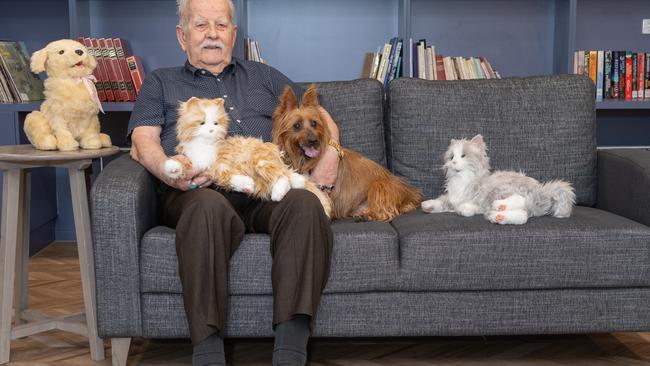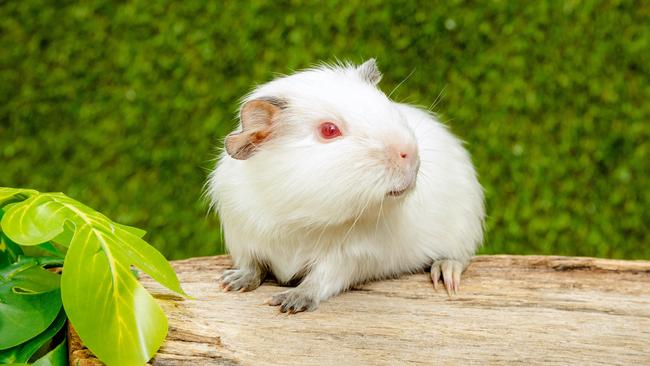The simple 60-minute pet program helping aged care residents
Can just 60 minutes help aged care residents feel less isolated and lonely? This new program - which goes for just an hour week - seems to be doing just that.

Ageing
Don't miss out on the headlines from Ageing. Followed categories will be added to My News.
Aged care homes have opened their doors to animals under a unique pet program boosting residents’ health in Melbourne.
Dogs, a guinea pig, a robotic cat and even a small parrot were among the animals that helped residents bond with visitors in a trial to combat social isolation and loneliness.
The ‘Pets and People’ project, from Monash University, found just one hourly visit per week led to residents recording “significant” improvements in their health and loneliness.
The research team, led by Dr Em Bould, hope to see the program adopted by other homes after the successful pilot at five Fronditha homes, four of which were in Melbourne.
Dr Bould said the results of the 18-week pilot, published in the Complementary Therapies in Clinical Practice journal, were even better than they expected.
“We found that both older adults and international students experienced a significant decrease in feelings of loneliness and a significant increase in their health,” they said.
Researchers measured the impact on 30 residents, and 10 international university students.
Dr Bould said social connection played “a crucial role” in health, wellbeing and ageing, with loneliness linked to several health issues.
“That feeling that you don’t belong somewhere … it can actually predict premature mortality and cognitive decline,” they said.
They said the program was inspired by their friendship with their elderly Greek neighbours, through their interest in her pet dog.
“They spoke no English, I spoke no Greek, but we connected over the dog,” they said.
“You don’t necessarily need words when there’s a pet involved.
“I thought how great would it be if we could do a program where we try and connect people through a shared interest in pets.”

The program involved a small group of international students — another demographic at higher risk for social isolation — visiting aged care homes for one hour a week with a couple of pets, including Dr Bould’s own dog, an Australian terrier named Barney.
Dr Bould said the team ran animal-themed activities and pets offered a starting point for what developed into some “really beautiful relationships”, with some students calling the older adults their “Australian grandparents”.
“The conversations moved beyond pets over time,” they said.
They said while they ensured pets with the right temperament were chosen, they also had robotic animals designed for people with dementia.
“I had no expectation on those,” Dr Bould said.
“But I had a cat that I gave to this one lady and she loved it instantly.
“And then when we left the room, she started talking to the cat.
“It gives them a purpose, it gives them something to look after without the responsibility that a real pet offers.”
Fronditha Care chief executive Faye Spiteri said they had seen “positive and encouraging health outcomes as a result” of the program.
Dr Bould said it was designed to be low cost and, if proposed aged care reforms pass through parliament later this year, could help homes meet new obligations to ensure older adults can remain connected to pets.
“There’s really no excused for people not trying to bring pets into the lives of older adults,” they said.
More Coverage
Originally published as The simple 60-minute pet program helping aged care residents




